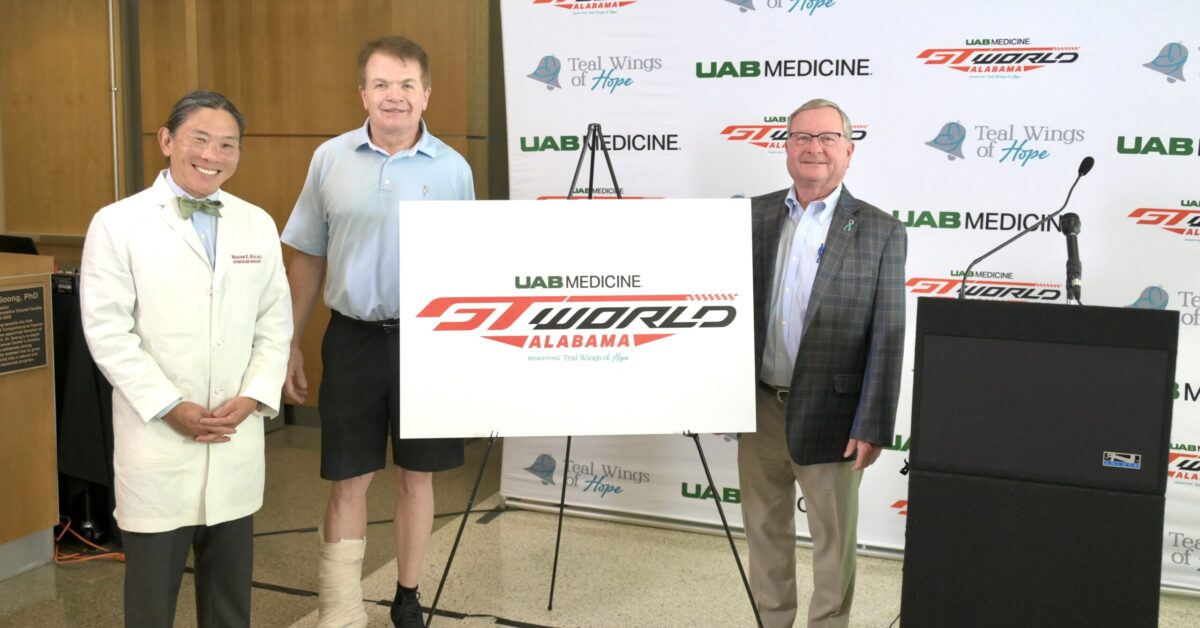Reviewed by: Nathan Watson
Quietly, Alabama scientists are preparing for a changing climate
Reading time: 5 minutes
Sponsored

In Alabama, we know the drill. Whenever stormy tornadic weather happens, which these days is far too often, we pull out the weather radio or tune in to our favorite weather station. We remind our friends and family where to shelter. We might even dig out a hard hat or helmet from a closet. ‘Be prepared’ is not only a Boy Scout motto—it’s what we do in Alabama when the weather turns dangerous.
We are resilient—prepared.
In our second story in a three-part series about Alabama’s climate, we examine the many ways scientists and researchers are preparing us to overcome the impacts of a changing climate.
Here are their stories.
Helping Farmers Succeed

Eve Brantley cares deeply about farmers and the water resources needed to help them succeed.
“I appreciate the level of risk associated with farming,” said Brantley, Director of Auburn University Water Resources Center. “As a farmer, you’ve got to be a businessman. You’ve got to be a meteorologist. You have to be a soil scientist. You’ve got to be a plant physiologist. Then there are pests. Agriculture is a tremendous undertaking.”
It is not easy farming in Alabama these days. Call it what you want, climate change—or, as some people say, “climate weirding”—can have serious implications for farmers. Over the past few years several Alabama communities have recorded climate extremes, including the warmest fall and wettest winter on record.
One way Brantley and Auburn University’s College of Agriculture are helping farmers is through a movement called Climate Smart Agriculture. Bottom line—they are looking at climate science to help communities and stakeholders respond to and prepare for extreme heat, droughts, floods and storms.
“We’re always looking for those opportunities to solve problems,” Brantley told us. “It takes a lot to provide food and fiber for a growing world. Depending on the reports that you read, we may either be getting more rain or less rain, but we do know that there will be unpredictability in water. And one thing we know you need to be successful in agriculture is water.”

Some of the ways Climate Smart Agriculture helps farmers respond to a changing climate include:
- Development of drought-resistant crops
- Helping farmers to build healthy soils that can hold more water
- Examining climate patterns through sophisticated modeling
- Encouraging the adoption of irrigation technology that helps farmers use water when and where it is needed
- Development of water use efficiencies, including rainwater harvesting
Along with its Climate Smart Agriculture initiatives, Auburn has hired people throughout the university to tackle climate change in a multitude of disciplines.
“We’ve had a climate cluster hire here at Auburn University in forestry, agriculture and the geoscience[s],” said Brantley. “We acknowledge there is a changing climate and we need to help mitigate and be prepared.”
Canary in a Coal Mine

Dr. Jim McClintock, one of UAB’s most distinguished scientists, has been observing climate change for over two decades.
“What I’ve been noticing is that climate change is no longer something that’s removed from us,” said McClintock. “It’s no longer something that’s affecting polar bears in the Arctic and penguins in Antarctica. Climate change, for me and my colleagues of all political persuasions, is hitting home. When we have these very tremendous rainfalls that occur in the Birmingham area,” (for example, September 2021 rains that produced 10+ inches in hours) “this kind of stuff is unprecedented.”
McClintock has witnessed “canary in the coal mine” moments both in Alabama and as a world-renowned explorer and researcher in Antarctica.

In the case of Antarctica, the waters are warming. As this continues, a [cold water] predator such as the king crab will grow in numbers and devastate the sea life around it. What difference does that make for Alabama?
According to McClintock, if we lose invertebrates on the shelf of Antarctica, we’re losing a huge repository of bio-chemicals that have evolved over millions of years that might fight cancer and AIDS, cystic fibrosis and different diseases.
That gets to the story of UAB’s drug discovery work.
“We’ve got two chemicals right now that are very interesting from our Antarctic marine drug discovery program,” McClintock explains. “We have a blob-like sponge-shaped organism that lives on the sea-floor that has a compound in it that’s exciting because it’s very active against melanoma skin cancer.”
Meanwhile in Alabama, he says you can see the effects, not only with life-saving drugs at UAB but in your back yard.
“So, if you just stop and look around you’ll notice the seasonal timing of the birds at your feeder have changed,” said McClintock. “But we are also seeing our beloved Cahaba River, a key source of our drinking water overflowing during torrential rains, chocked full of sediments and tainted with sewer treatment plant overflow. You know, we’re now seeing things that are going to affect our lifestyle and our health and safety.”
Next Up—A Challenge

Are we prepared to meet the challenge of a changing climate? What steps can we take as individuals and a community to implement climate friendly initiatives?
In our third and final installment, we will examine what Alabamians are doing to stem the tide of a changing climate, such as advocating for local green initiatives and a statewide conference. Follow @bhamnow to stay up to date on the latest.
Sponsored by:



